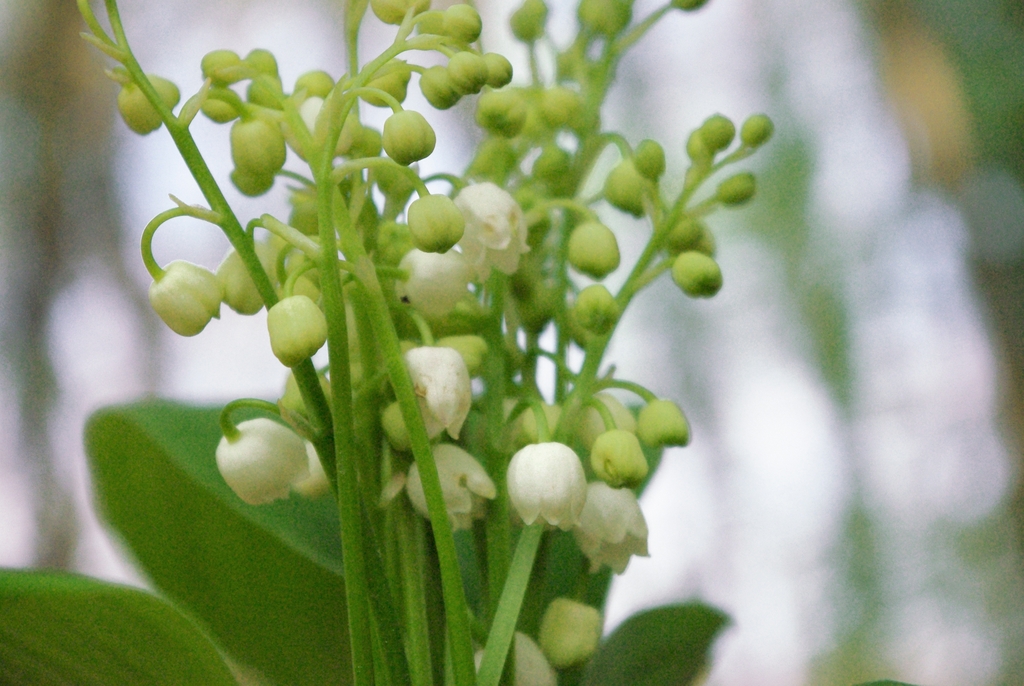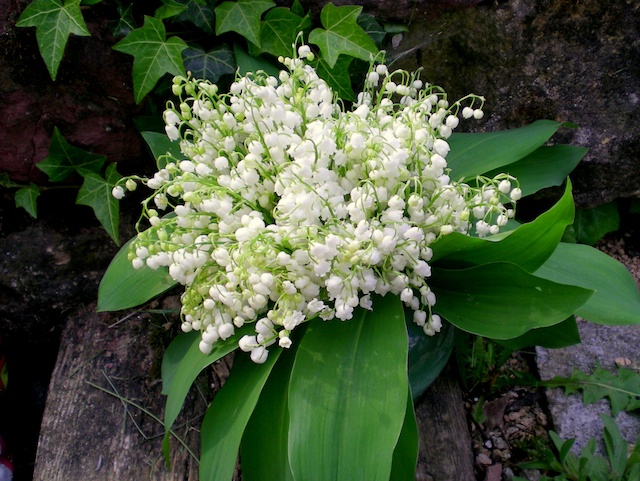Le temps du muguet is a French song with lyrics dating from the mid-20th century.
The story of "Le Temps du Muguet"
Le temps du muguet is a song written by Francis Lemarque (1917-2002) in 1959. It is a very nice song interpreted on the tune of a famous a Soviet Russian song: "Moscow nights" (les nuits de Moscou).
Muguet and May Day
Le temps du muguet is a song about love. It is a love that will bloom together with the lily of the valley and that will remain for a long time even after its blooming.

Muguet (Lily of the Valley). Photo by kostiuchenko via Envato Elements
The song is a symbol of spring, of life, of love, but also of May Day, known as Fête du Travail in France (Labour Day).
The lyrics of the song were written by Francis Lemarque and set to a Russian tune composed in 1955 by Vasily Solovyov-Sedoi (music) and Mikhail Matusovsky (lyrics).
The Russian song
In fact, the original song has nothing to do with May Day, nor with lily of the valley.
As the composer was a native of present-day St Petersburg, it was to be called Leningrad Nights. It became Moscow Nights at the request of the Soviet Ministry of Culture at the time.
Le temps du muguet
Lyrics, music, free download... let's learn more about the popular song:
Description and analysis of the lyrics in French
The original song of Le temps du muguet has 3 verses.
"Le Temps Du Muguet," sung by Francis Lemarque, is a nostalgic French song that celebrates the fleeting yet memorable days of May, represented by the blooming of lily of the valley (muguet in French).
This flower, which blooms briefly in May, serves as a poignant metaphor for both the beauty and the transience of life and love.
The personification of the Lily of the Valley
The song begins by personifying the time of the lily of the valley as an old friend returning.
This personification immediately establishes a sense of warmth and familiarity, evoking the joy and anticipation associated with reuniting with a beloved friend.
The setting along the quays, leading to a familiar bench where memories linger, reinforces this theme of revisiting cherished moments.

Lily of the valley, forest of Illfurth, Alsace © French Moments
The smile blooming again
As the muguet returns, so too does the radiant smile of the loved one, suggesting that the return of the flower coincides with a personal reunion, deepening the emotional impact of the season.
The imagery of the smile blooming again, more beautiful than ever, parallels the seasonal bloom, emphasizing renewal and continuity in their relationship.
The passing of the season
The chorus of the song underscores the ephemeral nature of the muguet's bloom, which lasts no longer than May itself.
However, for the lovers, the passing of the season does not diminish their feelings; their love remains as vibrant as ever, unaffected by the passage of time.
This contrasts the transient nature of the muguet with the enduring nature of true love.
An old friend leaving tiredly
The song then reflects on the departure of the muguet season, likening it again to an old friend who leaves tiredly after a short stay.
This departure is bittersweet, as it marks the end of a joyful period yet leaves behind memories and a promise of return. Importantly, the muguet leaves a gift—an essence of spring and a trace of youthful vitality, a metaphorical nourishment for their love to continue flourishing.
Conclusion
"Le Temps Du Muguet" is much more than a song about the arrival and departure of a season. It is a celebration of moments that, though fleeting, leave a lasting impact on the human heart.
The song elegantly captures the essence of ephemeral beauty through the metaphor of the muguet and contrasts it with the enduring nature of love.
This duality enhances the song's emotional depth, resonating with anyone who cherishes the brief yet beautiful moments in life and love.
Through Lemarque's lyrics, the song becomes a timeless reminder to cherish the fleeting joys of life while nurturing the lasting bonds that those joys can create.

Lily of the valley (muguet) in a French forest © French Moments

